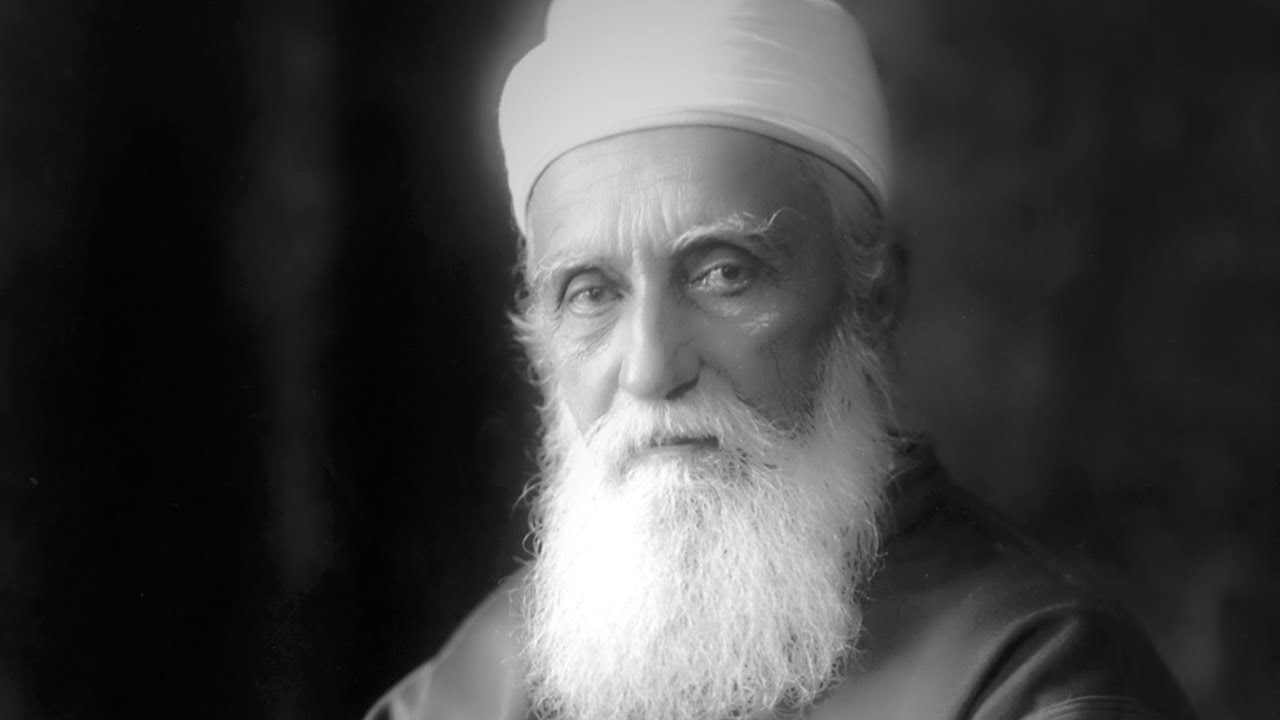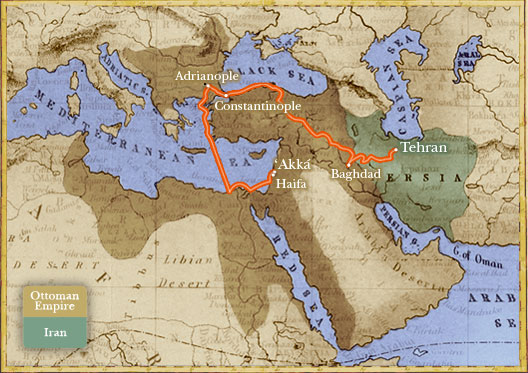|
Prologue
May
17, 2021
The Mystery of God
“My name is ‘Abdu’l-Bahá, my identity is ‘Abdu’l-Bahá,
my
qualification is ‘Abdu’l-Bahá, my reality is Abdul-Bahá, my praise is
‘Abdu’l-Bahá. Thraldom to the Blessed Perfection is my glorious and
refulgent diadem; and servitude to all the human race is my perpetual
religion.…No name, no title, no mention, no commendation hath he nor
will ever have except ‘Abdu’l-Baháá. This is my longing. This is my
supreme apex. This is my greatest yearning. This is my eternal life.
This is my everlasting glory!”

When ‘Abdu’l-Bahá – also known as Abbás Effendí, the Master, the Father
of the Poor, the Limb of the Law of God and the Centre of the Covenant
of the world-unifying Bahá’í Faith established by His father,
Bahá’u’lláh, in 19th century Persia – He who had been a prisoner of the
Ottoman Empire for more than 40 years and an exile for 56 years and who
had endured external and internal hardships that would have long ago
crushed the average human being – was travelling on April 24, 1912 in a
motorcar in Washington D.C. on His way to meet inventor Alexander
Graham Bell, He was overcome by the amazing circumstances He now found
Himself in, shouting beyond the treetops and the welcoming skies: “O
Bahá’u’lláh! What hast Thou done! O Bahá’u’lláh! May my life be
sacrificed for Thee! O Bahá’u’lláh! May my soul be offered up for Thy
sake! How full were Thy days with trials and tribulation! How severe
the ordeals Thou didst endure! How solid the foundations Thou hast
finally laid, and how glorious the banner Thou didst hoist!”
With characteristic self-effacement and great humility, the Master
bowed down to the stupendous revelation of Bahá’u’lláh, wonderstruck
despite being a wonder to all who met and knew Him, awed as He was by
where His Father’s teachings had now brought Him in the early decades
of the 20th century.
How does one encapsulate the expansive life of the Master, which spans
three continents, in mere words? The Báb, the herald and forerunner to
Bahá’u’lláh and the Bahá’í Faith, who was a prisoner from 1846 until
His execution by firing squad in 1850, never left the confines of
Persia, though His religion and writings set the country on fire,
culminating in the brutal massacre of 20,000 Bábís.

Bahá’u’lláh, who was a prisoner from 1852 until His passing in 1892,
never left the Middle East, although He and His family were exiled a
number of times: first to Baghdad in Iraq, then to Constantinople and
Adrianople within Turkey, and finally to ‘Akká in Palestine to what was
then considered the worst prison in all of the Ottoman Empire.
From the tender age of 8, ‘Abdu’l-Bahá would share in His father’s
imprisonment, exiles and many sufferings, compounded with His own, of
which He never complained. Until Bahá’u’lláh’s passing, He would serve
as His shield, and afterwards as the Centre of the Covenant of the
nascent Bahá’í Faith. When He was finally freed following the Young
Turks Revolution in 1908, ‘Abdu’l-Bahá, now 64 years old and physically
weakened by His many hardships, dedicated the rest of His life to
fulfilling Bahá’u’lláh’s instructions, which included promoting the
Baha’í Faith on the international stage, setting in motion its
administrative foundations and, like a loving umbrella over all His
actions and words, dedicating His life to serving humanity.
In His twilight years, He would meet thousands of people who would be
transformed by His loving presence and wisdom. Even those whose
spiritual eyes were blunted by material concerns attested to His
greatness of spirit. Some left His presence totally transformed, some
left defiant, but none ever left indifferent. Whether friend or foe, He
enveloped each and all with divine love and forgiveness, all the while
standing firm and noble in the cause of His Father.
Although He was neither a prophet nor a manifestation of God, such a
remarkable soul with an endlessly loving and wise soul has never until
the mid-19th century ever walked the earth. In the following months, as
we visit but moments of His tumultuous and extraordinary life, we will
try to understand, just a little, exactly who ‘Abdu’l-Bahá was and
always will be.
As Shoghi Effendi, the grandson of the Master and the Guardian of the
Faith once noted: He is, above and beyond these appellations,
the “Mystery of God” – an expression by which Bahá’u’lláh Himself has
chosen to designate Him, and which, while it does not by any means
justify us to assign to Him the station of Prophethood, indicates how
in the person of ‘Abdu’l-Bahá the incompatible characteristics of a
human nature and superhuman knowledge and perfection have been blended
and are completely harmonized.
|
|
